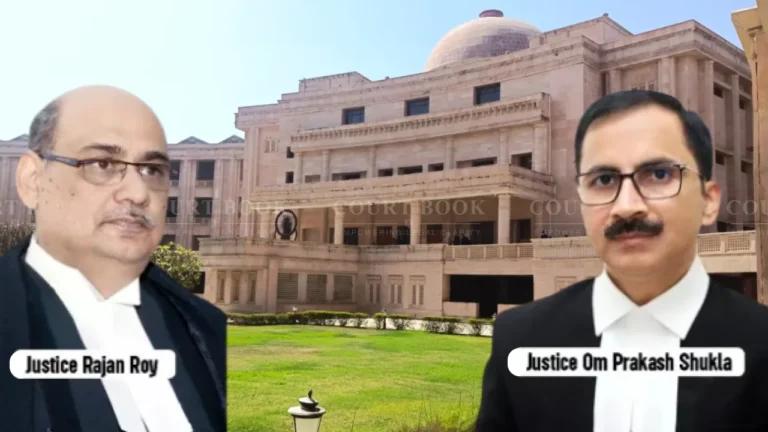The Allahabad High Court recently addressed a critical legal vacuum in the Mental Healthcare Act, 2017, concerning the nomination of representatives for individuals with mental disabilities. The Court observed that the Act lacks clear standards and procedures for determining the “wills and preferences” of a mentally ill person when appointing a representative. In such cases, the courts have a duty to step in as parens patriae to protect the person’s best interests.
The Division Bench of Justice Rajan Roy and Justice Om Prakash Shukla made these remarks while hearing a petition filed by Saurabh Mishra. He sought to be appointed as the legal representative of his aunt, a 75% disabled woman suffering from moderate intellectual disability (IQ-44). She was granted a family pension after her father's death, and there was no surviving parent.
Read Also:- Allahabad High Court Orders Electricity Restoration at SP MP’s Home, Stays ₹1.91 Crore Power Dues
The Court noted:
“The MH Act lays down certain standards to determine the ‘best interest’ of a mentally ill person, but there is no guidance on what constitutes ‘wills and preferences.’ Even the proviso to Section 14(1) does not provide any factors for granting total support.”
The Mental Healthcare Board had rejected Mishra’s application under Section 14 of the Act, citing two pending criminal cases against him. However, the High Court dismissed this reasoning, stating that the offences were not heinous or of moral turpitude. It also held that the Board could not justify its decision by later filing an affidavit with additional reasons.
Read Also:- J&K High Court Halts Executive Control of Shri Nav Durga Jhaleri Mata Shrine, Appoints Interim Administrator
Quoting Section 4 and Section 5(1)(c) of the Act, the Court emphasized that every person is presumed capable of making healthcare decisions unless proven otherwise. In the absence of an advance directive by the disabled woman, Section 14(4)(d) permits the Board—or the Court—to appoint a suitable person.
“Since the opposite party is physically and mentally incapable of expressing her will or preference, the Court must step in under its parens patriae jurisdiction to protect her.”
Read Also:- Suspension of HOD in Sexual Harassment Case Builds Trust Among Women Employees: Allahabad High Court
The Court further explained that the legal framework lacks mechanisms to manage the financial or property affairs of the mentally ill. It ruled that in such statutory gaps, courts are empowered to nominate guardians.
Finding the petitioner to be a close relative and already taking care of the woman, and with other heirs submitting a no-objection certificate, the Court set aside the rejection order. It appointed him as her nominated representative.
The Court ordered:
“The petitioner shall take all decisions regarding the opposite party’s daily care, treatment, and financial affairs, including pension. However, he must seek the Board’s prior approval for any transfer of immovable property.”
Read Also:- Supreme Court: Property Transfer Under Section 48(e) Is Voidable, Not Automatically Void
The peQuote Highlights:
“In absence of any statutory mechanism, the Court acts as parens patriae to safeguard the interests of persons with mental disabilities.”
“The MH Act does not define the will and preference criteria or provide guidelines for representative appointments, leaving a clear statutory vacuum.”tition was accordingly allowed.
Case Title: Saurabh Mishra v. State Of U.P. Thru. Prin. Secy. Deptt. Of Medical Health And Family Welfare U.P. Lko. And 3 Others
Case No.: WRIT - C No. - 10898 of 2024















